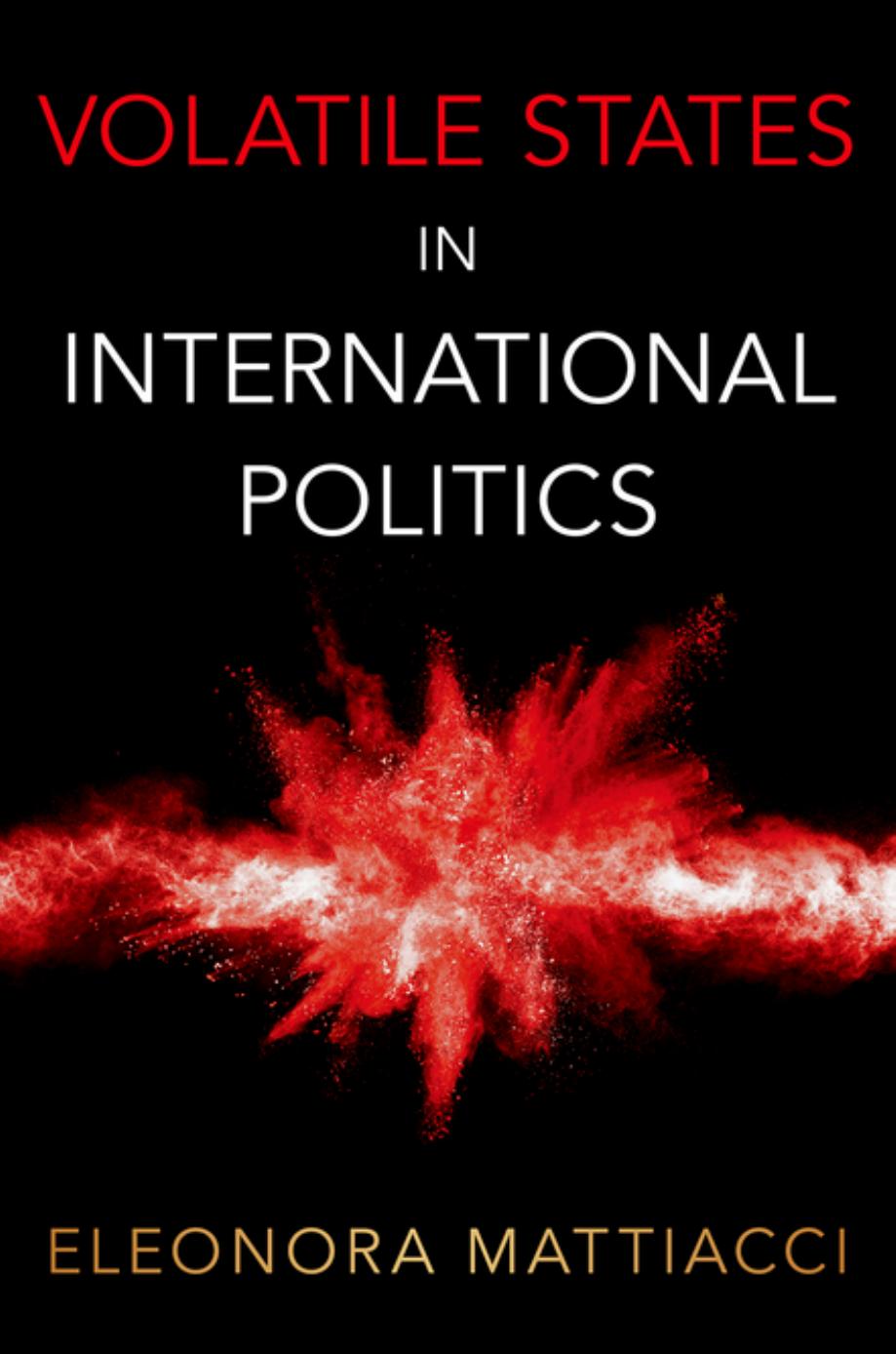Volatile States in International Politics by Eleonora Mattiacci

Author:Eleonora Mattiacci
Language: eng
Format: epub, pdf
Publisher: Oxford University Press
Published: 2022-06-15T00:00:00+00:00
Alternative Explanations
As Chapter 2 makes clear, it is possible to think of several alternative explanations of volatility in statesâ behaviors. This section explores why such alternative explanations are not able to capture variation in volatility as well as my argument does.
For example, it could be that the presence of specific issues between France and the US explains the increase in French volatility toward the US. More issues could have developed or issues could have become more salient post-1962 . The presence of issues might increase the opportunities to interact and thus increase the probability of volatile behavior. Similarly, salient issues might attract greater attention and thus spur both more cooperation and conflict.
Statistically, a series of tests of proportion comparing the issues present pre- and post-1962 shows that there is no significant difference between the two periods in terms of the number of issues that were present. Moreover, similar tests show that the incidence of traditionally salient issues such as military and economic issues does not seem to differ much between the two time periods.168 Similarly, a close examination of the historical record does not provide sufficient evidence for this issue-based explanation. As the discussion above illustrates, declassified and contemporaneous sources suggest that issues that were present and salient in 1954, such as what to do with communist countries, Europeâs integration, the German question, nuclear weapons, NATO, and the transition of French colonialism, do not disappear in the years after 1962, when volatility decreases.
Not only do these similar issues appear to be recurrent throughout the time period 1954â1962, but also the previous discussion suggests that France and the US often created issues dynamically, coupling and decoupling bigger issues to serve their political purposes.
In particular, France did see relations between France and the US as comprising very many topics or issues: âBerlin, NATO, the UN, Franco-American nuclear relations, the Far East, Africa, the Middle East, Latin America, economic relations between the US and Europe and the dollar.â169 Yet what constituted an âissueâ often morphed as a function of political calculus. Examples abound. French decision makers, at different points in time and to serve their domestic agenda, alternated between connecting Franceâs policies in Africa with the larger struggle against communism taking place both in Africa and in Europe (e.g., in the case of Suez) and arguing that those policies in Africa were the domain of domestic politics and had little to do with foreign policy.170 At different times, French officials presented the issue of what to do with the Soviet Union and what to do about the German question as linked or as disjoint.171
The political determination of what constituted an âissueâ for consideration was politically motivated and dependent on the (previous) decision to cooperate or not. Refusing to cooperate or proliferate and thus rejecting invitations to participate in the Limited Test Ban Treaty, France argued that disarmament and proliferation were linked and should have been treated as two faces of the same coin, though Americans disagreed with the linking of these two concepts.172
Download
Volatile States in International Politics by Eleonora Mattiacci.pdf
This site does not store any files on its server. We only index and link to content provided by other sites. Please contact the content providers to delete copyright contents if any and email us, we'll remove relevant links or contents immediately.
Collaborating with Parents for Early School Success : The Achieving-Behaving-Caring Program by Stephanie H. McConaughy; Pam Kay; Julie A. Welkowitz; Kim Hewitt; Martha D. Fitzgerald(916)
Entrepreneurship Education and Training: The Issue of Effectiveness by Colette Henry Frances Hill Claire Leitch(683)
Materializing the Middle Passage by Jane Webster;(512)
Adding Value to Policy Analysis and Advice by Claudia Scott; Karen Baehler(500)
Race and American Political Development by unknow(493)
Sociological Perspectives of Health and Illness by Constantinos N. Phellas(492)
American Government and Politics Today by Steffen W. Schmidt Mack C. Shelley Barbara A. Bardes(488)
Human and Global Security : An Exploration of Terms by Peter Stoett(477)
Control Of Oil - Hardback by Kayal(476)
The Disappearance of Rituals: A Topology of the Present by Byung-Chul Han(421)
The Catholic Church and European State Formation, AD 1000-1500 by Jørgen Møller(406)
Advances in Child Development and Behavior, Volume 37 by Patricia J. Bauer(405)
The World According to China by Elizabeth C. Economy(390)
Theories of Counseling and Psychotherapy: A Case Approach by Nancy L. Murdock(383)
Application of classical statistics, logratio transformation and multifractal approaches to delineate geochemical anomalies in the Zarshuran gold district, NW Iran by unknow(377)
Left Is Not Woke by Susan Neiman(372)
Cross-Cultural Child Development for Social Workers by Lena Robinson(360)
Turkey's Relations with the West and the Turkic Republics: The Rise and Fall of the Turkish Model by Idris Bal(357)
Japan's Ainu Minority in Tokyo by Mark K. Watson(344)
